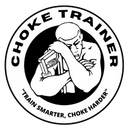Fueling Success: The Importance of Nutrition for Athletes
When it comes to athletic performance, nutrition is just as critical as training. Athletes often dedicate countless hours to perfecting their skills, building strength, and improving endurance. However, without proper nutrition, even the most rigorous training regimen can fall short. Nutrition is the fuel that powers the body, aids recovery, and enhances overall performance. Here, we dive into why nutrition is vital for athletes and how it can make or break their success.
Why Nutrition Matters for Athletes
Athletes demand more from their bodies than the average person. Their training routines deplete energy stores, stress muscles, and tax recovery systems. Proper nutrition ensures their bodies can meet these demands, recover efficiently, and continue to perform at their best. Below are some key reasons why nutrition is essential for athletes:
1. Energy for Performance
Athletes need adequate energy to perform at peak levels during training and competition. Calories, derived from macronutrients—carbohydrates, proteins, and fats—provide the energy needed to fuel intense physical activity.
• Carbohydrates: The body’s primary source of energy, especially during high-intensity activities. Consuming sufficient carbs replenishes glycogen stores, preventing fatigue and maintaining stamina.
• Fats: Provide long-lasting energy, particularly during endurance activities.
• Proteins: While not a primary energy source, proteins help repair and build muscle tissue.
Without proper fueling, athletes risk “hitting the wall,” a state of exhaustion caused by depleted glycogen stores.
2. Muscle Repair and Recovery
Strenuous exercise breaks down muscle tissue. Nutrition plays a crucial role in repairing this tissue and building it back stronger. Protein is the cornerstone of muscle recovery, providing the amino acids needed for tissue repair.
Additionally, consuming carbohydrates post-workout restores glycogen levels, while fats support overall recovery and inflammation reduction. Timing also matters—post-exercise meals or snacks should be consumed within 30–60 minutes after activity to maximize recovery.
3. Injury Prevention
Proper nutrition strengthens the body and reduces the risk of injury. Key nutrients like calcium, vitamin D, and magnesium promote bone health, while antioxidants from fruits and vegetables reduce inflammation and oxidative stress.
Athletes who neglect their nutrition are more likely to experience stress fractures, muscle strains, and prolonged recovery times.
4. Mental Focus and Stamina
Nutrition doesn’t just fuel the body—it also fuels the mind. An athlete’s ability to focus, make quick decisions, and maintain composure is heavily influenced by their diet. Foods rich in omega-3 fatty acids, like fish and walnuts, support brain health, while adequate hydration prevents fatigue and mental fog.
5. Long-Term Health
Athletes often prioritize short-term performance but must also consider their long-term health. Proper nutrition supports overall wellness, ensuring the body can sustain high levels of activity for years to come. A balanced diet reduces the risk of chronic conditions such as heart disease, diabetes, and osteoporosis.
Key Nutritional Components for Athletes
1. Hydration
Water is the foundation of athletic performance. Even mild dehydration can lead to fatigue, reduced endurance, and impaired concentration. Athletes should aim to stay hydrated throughout the day and replace fluids lost during exercise with water or electrolyte-rich drinks.
2. Macronutrients
• Carbohydrates: Essential for energy. Athletes should prioritize whole grains, fruits, and vegetables.
• Proteins: Key for muscle repair. Lean meats, eggs, beans, and dairy are excellent sources.
• Fats: Healthy fats from sources like avocados, nuts, and olive oil support long-term energy and overall health.
3. Micronutrients
Vitamins and minerals are often overlooked but are critical for optimal performance. Key nutrients include:
• Iron: Supports oxygen transport in the blood. Found in red meat, spinach, and lentils.
• Calcium and Vitamin D: Promote strong bones. Found in dairy, leafy greens, and fortified foods.
• Magnesium and Potassium: Aid muscle function and recovery. Found in bananas, nuts, and dark chocolate.
Personalized Nutrition Plans
Every athlete is unique, and their nutritional needs vary based on factors like age, gender, sport, and training intensity. For example:
• Endurance athletes require higher carbohydrate intake to fuel prolonged activity.
• Strength athletes need additional protein to support muscle growth.
• Youth athletes have increased caloric needs to support both growth and training.
Consulting a sports nutritionist can help athletes develop a personalized plan that meets their specific goals and needs.
Common Pitfalls to Avoid
1. Skipping Meals: Leads to energy deficits and reduced performance.
2. Over-reliance on Supplements: Whole foods should form the foundation of any diet. Supplements are just that—supplementary.
3. Poor Hydration: Even slight dehydration can impair performance.
4. Imbalanced Diets: Fad diets that eliminate entire food groups can lead to nutrient deficiencies.
Conclusion
For athletes, nutrition is not just about eating; it’s about fueling their bodies for success. A well-balanced diet enhances performance, supports recovery, and promotes long-term health. By prioritizing proper nutrition, athletes can unlock their full potential, perform consistently at their best, and sustain their passion for years to come.
Remember: you are what you eat, and as an athlete, what you eat determines how you perform. Choose wisely, fuel intentionally, and watch your performance soar.

